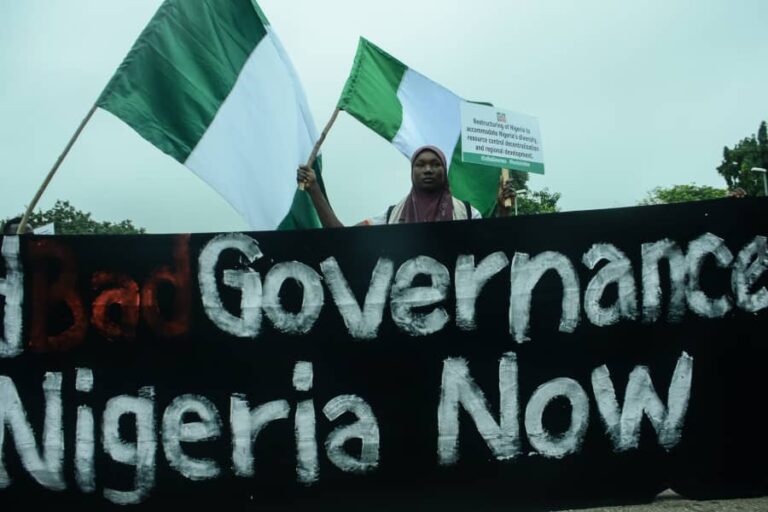Abuja, August 1, 2025 – By Peter Omopo
One year after the Nigerian police allegedly used lethal force and conducted mass arrests during the #EndBadGovernance protests, Amnesty International has condemned the federal government’s failure to deliver justice to the victims and survivors.
In a statement issued on Friday via its official website and social media channels, the human rights organisation lamented the lack of accountability and ongoing human rights violations, describing the government’s response as a “violent crackdown” on peaceful dissent.
The protests, which erupted on August 1, 2024, and lasted for ten days, were driven by public outrage over worsening economic hardship, high inflation, soaring food prices, and the hike in fuel costs. Demonstrations took place in major cities across the country, drawing widespread participation but also resulting in clashes with security forces.
Amnesty International reported that at least 24 protesters were killed by police officers in various states including Kano, Jigawa, Katsina, Borno, Niger, and Kaduna. The organisation said its investigations revealed that police fired live ammunition at close range, targeting protesters’ heads and torsos—indicating a deliberate intent to kill.
“The Nigerian authorities are yet to take appropriate and effective measures to respect, protect, promote and fulfil the rights to freedom of expression and peaceful assembly,” said Isa Sanusi, Director of Amnesty International Nigeria.
The group added that several protesters who were arrested during the demonstrations have faced “sham trials” and have been convicted on what it termed “bogus charges.” In Abuja, Kano, Jigawa, Katsina, and Kaduna, trials are ongoing, with some of the accused facing charges such as inciting mutiny, levying war against the state, and attempting to destabilise the country.
In Borno State, the statement alleged that protesters were convicted and sentenced to harsh punishments including caning, community service, and imprisonment. One group was reportedly tried for forming a group named ‘Zanga Zanga’ and “agreeing to take up arms against the government”—a charge Amnesty described as fabricated.
The organisation further noted that detainees, including minors, were tortured, starved, and subjected to degrading treatment in custody. It cited an incident where minors collapsed in court due to poor treatment while awaiting trial at the Federal High Court in Abuja on November 1, 2024.
“The Nigerian government’s refusal to drop these charges despite overwhelming evidence that the protesters committed no crime demonstrates a blatant disregard for justice,” the statement said.
Amnesty International demanded immediate action from the government to ensure justice for the victims, stressing that the continued impunity encourages security forces to use force as a routine method for suppressing dissent.
“The government must hold police officers accountable for their actions. Failing to do so sends a dangerous message that such abuses are tolerated,” the group warned.
The statement also called on the international community to exert pressure on the Nigerian government to uphold human rights and democratic principles. It reiterated that the original purpose of the #EndBadGovernance protests was a demand for better governance, transparency, and an end to police brutality.
“One year after, the wounds are still fresh, and the victims are still waiting,” Amnesty said. “The protests may have ended, but the struggle for justice and accountability is far from over.”

